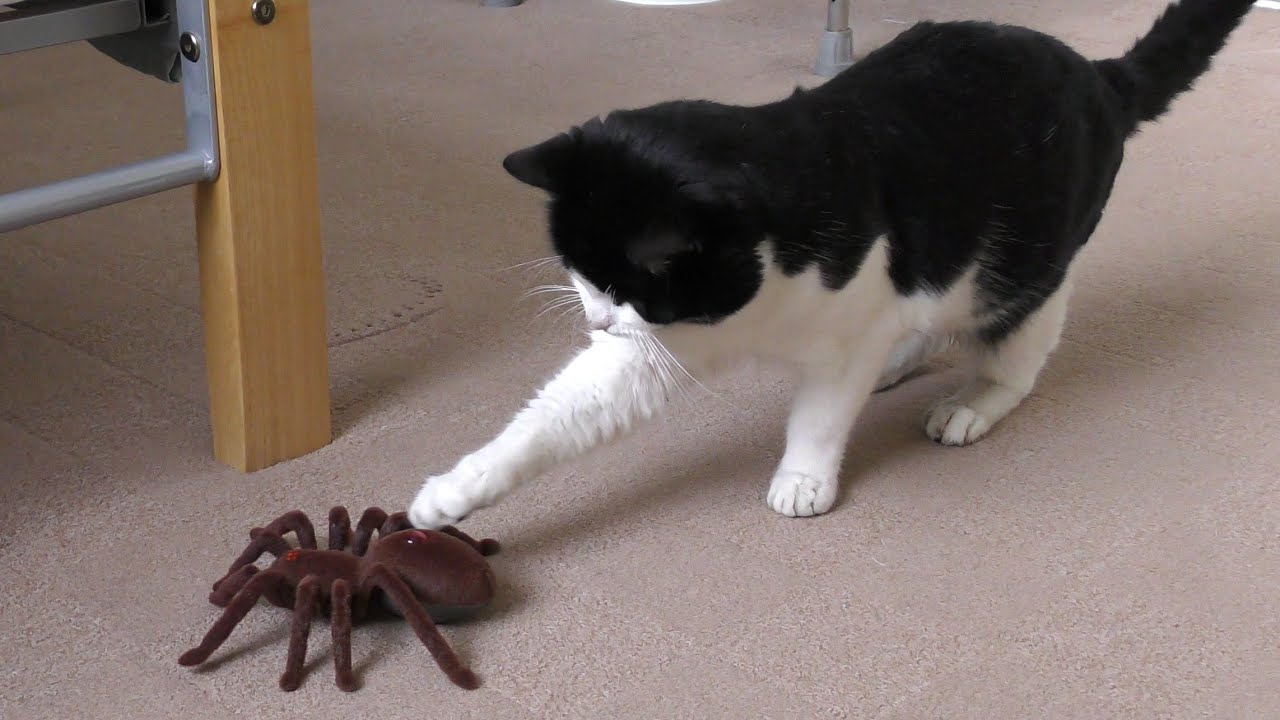Cats are known for their playful and curious nature, often chasing anything that moves. One common sight in many households is a cat pouncing on a tiny spider. But do cats eat spiders, and is it safe for them? This article delves deep into this intriguing behavior, exploring why cats hunt spiders, the potential risks, and what cat owners should do if their feline friend consumes one.
Why Do Cats Eat Spiders?
Cats are natural-born hunters. Their instinct drives them to stalk, pounce, and sometimes eat their prey. Spiders, being small and quick, trigger a cat’s predatory instincts. Here are a few reasons why cats eat spiders:
- Instinctive Hunting Behavior – Cats are skilled hunters, and they enjoy the thrill of chasing and catching small creatures.
- Playfulness – Spiders move unpredictably, making them enticing playthings for cats.
- Curiosity – Cats explore their surroundings using their paws and mouths, leading them to taste their captured prey.
- Nutritional Value – Although minimal, spiders contain proteins and other nutrients that might appeal to a cat’s diet.
- Boredom – Cats may chase and eat spiders simply because they are bored and looking for entertainment.
Is It Safe for Cats to Eat Spiders?
While it is generally safe for cats to eat spiders, there are some risks involved. Most household spiders are harmless, but a few species can pose a threat. Here’s what cat owners should know:
- Most Spiders Are Harmless – The majority of household spiders do not contain venom strong enough to harm cats.
- Venomous Spiders Pose a Risk – Some spiders, such as black widows and brown recluses, have venom that can be toxic to cats if bitten or ingested.
- Gastrointestinal Upset – Eating spiders can sometimes cause mild stomach discomfort, leading to vomiting or diarrhea.
- Allergic Reactions – Some cats may be allergic to spider venom, leading to swelling or other symptoms.
- Secondary Poisoning – If a spider has been exposed to pesticides, a cat may ingest harmful chemicals.
Signs That a Spider Has Harmed Your Cat
If a cat eats a venomous spider or is bitten while playing, symptoms may appear. Be on the lookout for these signs:
- Drooling or excessive salivation
- Swelling around the mouth or bite area
- Vomiting or diarrhea
- Lethargy and weakness
- Difficulty breathing
- Muscle tremors or seizures
If any of these symptoms arise, consult a veterinarian immediately.
How to Prevent Cats from Eating Spiders
To keep your feline friend safe, consider these preventive measures:
- Keep Your Home Clean – Regular cleaning reduces the number of spiders in your home.
- Use Pet-Safe Pest Control – Avoid using toxic pesticides that can harm your cat.
- Provide Adequate Stimulation – Ensure your cat has plenty of toys to prevent them from chasing spiders for entertainment.
- Monitor Their Behavior – If your cat frequently hunts spiders, try to redirect their attention to safer alternatives.
- Seal Entry Points – Prevent spiders from entering your home by sealing cracks and openings.
What to Do if Your Cat Ingests a Spider
If your cat has eaten a spider, here’s what you should do:
- Observe for Symptoms – Most cats will be fine, but monitor their behavior for any signs of distress.
- Provide Fresh Water – This helps in flushing out any potential toxins from their system.
- Check for Bites – Inspect your cat for any spider bites, which may cause swelling or irritation.
- Consult a Vet If Necessary – If you notice any concerning symptoms, seek veterinary advice.
Do Spiders Avoid Homes with Cats?
Cats are effective hunters, and their presence can deter spiders. While spiders do not consciously avoid homes with cats, they are less likely to survive in an environment where a feline predator is present. However, spiders usually hide in places that cats cannot reach, such as high corners and behind furniture.
Can Kittens Eat Spiders?
Kittens are even more curious than adult cats and may attempt to eat spiders. Since their immune and digestive systems are still developing, eating a spider can pose a higher risk for them. Always supervise kittens and prevent them from interacting with insects or spiders that could be dangerous.
Conclusion
So, do cats eat spiders? Yes, they do. While most household spiders are harmless, venomous species and pesticide exposure pose some risks.
Cats are natural hunters, and their instinct may drive them to chase and consume spiders. However, pet owners should monitor their cats for any adverse reactions and take preventive measures to minimize potential hazards. By keeping a clean home, providing adequate stimulation, and using pet-safe pest control, cat owners can ensure their furry friends stay safe and entertained without unnecessary risks.
FAQs
- Can a cat get sick from eating a spider?
Most of the time, eating a spider will not make a cat sick. However, venomous spiders or pesticide-contaminated insects can cause health issues. - Should I stop my cat from eating spiders?
While it is not always necessary, preventing cats from eating spiders can reduce potential risks. - How do I know if my cat has been bitten by a venomous spider?
Look for signs such as swelling, drooling, lethargy, and difficulty breathing. - Are there any benefits to cats eating spiders?
Spiders contain small amounts of protein, but they do not provide significant nutritional benefits. - Do cats naturally deter spiders?
Cats may reduce the number of spiders in a home, but they do not entirely eliminate them.
